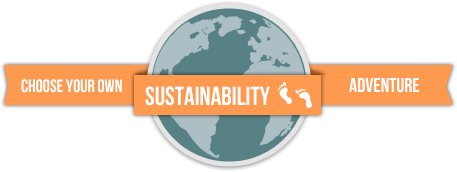FOR THE SOLUTION VIDEO TO THE THIRD CHALLENGE AS WELL AS AN INTERVIEW WITH ERIC AND ANTONIO FROM THE MESOAMERICAN INSTITUTE OF PERMACULTURE (IMAP), PLEASE SCROLL TO THE BOTTOM OF THIS PAGE!

Title of the third Challenge
Lake Atitlán, Guatemala – Eco-Village Adventure
Related topic(s)
Sustainability, Social, Governance
Introduction
Lake Atitlán is a large lake in the highlands of Guatemala, bordered on its southern edge by three volcanoes. The lake, commonly considered to be the deepest in Central America, is also home to many Mayan communities.
As we travel from Mexico south towards Nicaragua for the Christmas holidays, we’ll be passing through Guatemala and want to stop and see some of this beautiful country. Considering the uniqueness of Lake Atitlán, we have decided that we have to stop there, but where should we stay?
In Mazunte we met a few people from Argentina who are traveling around and visiting “eco-aldeas” (or eco-villages) throughout Latin America. Ever since Valentina started doing some research on similar communities, we’ve been interested and curious to visit an eco-village and see how they are pushing the boundary of what is possible to advance sustainability and inspire others. And guess what, as there are three volcanoes at the lake, we’ve also found three eco-villages around Lake Atitlán that we’d like to contact about visiting and staying with them for a few days!
By now you’re probably wondering what an eco-village is, right?
As Robert Gilman described it in 1991 in “The Eco-Village Challenge”, an ecovillage is a “human-scale full-featured settlement in which human activities are harmlessly integrated into the natural world in a way that is supportive of healthy human development, and can be successfully continued into the indefinite future.”
But you can also read more about them on the website of the Global Ecovillage Network, a growing network of thousands of sustainable communities worldwide, or watch the following short video that introduces you to Dancing Rabbit Eco-Village in Missouri.
Challenge
During the first week of December we will be leaving Mazunte, Mexico and traveling to San Cristobal de las Casas and then Palenque (both in the Mexican state of Chiapas). After spending a couple days in each, we plan on catching a bus to Lake Atitlán. Before we go there, however, we would like to contact one of the following three eco-villages to see if we can visit and stay with them for a couple days. YOU decide which one we should visit!
Here are the three options
a) Mesoamerican Institute of Permaculture
b) Atitlán Organics
c) Green New World
Who will succeed in persuading Matt and Valentina to choose one of the three options?
It all depends on what you suggest! With your teachers, alone, in groups or together with the other partner schools, choose which eco-village Valentina and Matt visit during their stay at Lake Atitlán, Guatemala and convince them why they should do what you propose! Your teachers will tell you in what form your argument should be made, for instance as an essay, a video, or a poster.
When you try to persuade them, remember to cover the three core pillars of sustainability: environmental, social and economic sustainability.
And remember: The more you work together, the more likely that your choice will be selected!
Useful information and links
- Global Eco-Village Network: http://gen.ecovillage.org
- Mesoamerican Institute of Permaculture: http://imapermaculture.wordpress.com
- Atitlán Organics: http://www.atitlanorganics.com
- Green New World: http://www.greennewworld.org/index.html
- “Paradise Lost”, an article about Lake Atitlán by Joyce Maynard in the New York Times (2012): http://www.nytimes.com/2012/05/14/t-magazine/paradise-lost-in-guatemala.html?pagewanted=all
- The Wikipedia entry on eco-villages: http://en.wikipedia.org/wiki/Ecovillage
If you have any questions for Matt or Valentina, post them here (see below) or send us an email!
We look forward to hearing from you and reporting back from the highlands of Guatemala!
Valentina and Matt
HERE IS THE SOLUTION VIDEO:
AND HERE IS THE INTERVIEW WITH ERIC AND ANTONIO FROM THE MESOAMERICAN INSTITUTE OF PERMACULTURE (IMAP):
